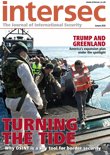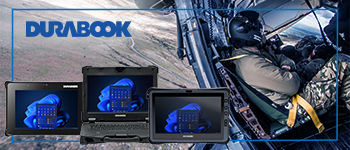Africa fights back
Jeanne McKinney explores the challenges of overcoming Africa’s tyranny of distance to fight terror
Stabilising is a tall order on a large continent with many crises happening at once within the nation states. When it comes to Africa, it is not only about countering terror groups but also deterring malign actors like China and Russia seeking dominant influence through economic, political or military power. Each African country has its own culture and way of doing things. How can one organisation help support the critical security needs of such a diverse collection of independent states?
Ask AFRICOM, whose area of responsibility (AOR) encompasses all of Africa except for Egypt. It tells us what terror groups and other security challenges it currently faces that threaten the US homeland, forces and interests. In Africa – the US gives a lot to sustain the survival of irreplaceable African resources – mainly its people who deserve to live a life free of terror, free of hunger and displacement. The African people deserve to benefit from the land of their ancestors. There is no continent in the world like Africa and it has a lengthy list of bad guys leaving a bloody trail to extort what is not theirs in the most violent ways possible.
In the East, al-Shabaab in Somalia has a presence and is a long-standing security challenge. Moving West into the Sahel, Jama’at Nusrat ul-Islam wa al-Muslimin (JNIM) is operating, an affiliate of al-Qaeda. Various Isis-linked groups, including Isis-Somalia and Isis-Sahel are also driving armed conflict and inter-communal violence. In central Sahel, Burkina Faso, Mali and Niger populations are getting hit with al-Qaeda’s JNIM and the Islamic State Sahel Province.
“Armed Islamist groups perpetrate recurrent abuses and attacks against civilians. These groups systematically use sieges, threats, kidnappings, improvised explosive devices (IEDs) and landmines as deliberate tactics of war as they seek to control supply routes and increase areas of influence. They have also enforced their own interpretation of Sharia law in areas under their control, imposing severe gender discriminatory rules,” reports the Global Centre for the Responsibility to Protect.
“AFRICOM promotes African-led stability and supports our partners’ efforts to defeat these terrorist organisations through security cooperation, exercises and disaster preparedness. In short, our activities support the growing effectiveness of our African partners’ efforts against terrorism, which in turn forestalls the growth and metastasis of these groups’ efforts to the homeland,” says AFRICOM spokesperson, LTC Douglas Halleaux, US army.
While foreign collaboration can be a deterrent as well as both air and ground operations assist, the inner political conflicts cannot be effectively controlled by force. Stability and prosperity may have to rely on non-combatant foreign engagement from the US State Department through their embassies to promote non-lethal solutions and cooperative agreements. Yet when those African states are not prepared for insurgencies and/or disloyal factions fuelled to overthrow, it is a fireball that sometimes requires emergent interactions from foreign forces trained and ready to act with regional forces.
“On January 29, 2025, the Economic Community of West African States (ECOWAS) published an official press release announcing the exit of Burkina Faso, the Republic of Mali and the Republic of Niger from the coalition.” These three states formed the Alliance des États du Sahel (AES), or Alliance of Sahel States [their own defence pact],” states Georgetown Security Studies Review.
The political fracture has led to regional security deterioration, a loss of democracy in the Sahel and alienation to the “liberal international order.”
“Of the last seven successful coups in Africa in the past three years, five occurred within the three AES member states.”
“AES states have eviscerated ECOWAS for its ties to formerly colonialist Western powers, preferring the cultivation of less “invasive” relationships with Russia and the People’s Republic of China (PRC). AES members have blamed ECOWAS for many of the region’s woes,” reports Georgetown Security Studies Review. Yet are they seeing the writing on the wall when it comes to China or Russia?
AES expulsions of Western security backers like the US and France “have left societies in these countries largely undefended from jihadist expansion. Attempts to replace Western cooperation with Russian Wagner mercenaries have failed to stem the violence. . .” continues Georgetown Security Studies Review, adding: “Russian presence in the Sahel has intensified these conflicts – Wagner mercenaries are notorious for committing human rights violations and atrocities against civilians, potentially legitimising jihadist and insurgent militias’ influence on local populations.” Although AFRICOM currently does not have activities in Burkino Faso, Mali and Niger, it is busy elsewhere when either their commander-in-chief calls on it or a State Department need arises. Instability in one place on the huge continent can and does expand to cause more destruction and death.
AFRICOM has been working with regional governments and forces since it “became fully operational capable on 1 October, 2008. A full-spectrum combatant command, US AFRICOM is responsible for all US Department of Defense operations, exercises and security cooperation on the African continent, its island nations, and surrounding waters.” (Patriot Profiles)
US Africa Command covers 53 African states, more than 800 ethnic groups, over 1,000 languages, vast natural resources, a land mass that is three-and-a-half times the size of the US, with nearly 19,000 miles of coastland. (AFRICOM)
Spokesperson LTC Halleaux relays that AFRICOM partnerships are key for fast, effective crisis response across the continent. Host nation governments that support logistics movements mean the difference of hours in response time, depending on where chaos suddenly erupts. Then there is ongoing chaos to disrupt, deter and disable. The Director of National Intelligence describes Somalia’s problems with the al-Shabaab terror network: “al-Shabaab has claimed responsibility for many bombings – including various types of suicide attacks – in Mogadishu and in central and Northern Somalia, typically targeting Somali government officials, AMISOM and perceived allies of the FGS. Since 2013 al-Shabaab has launched high-profile operations in neighbouring countries, most notably the September 2013 Westgate mall attack in Nairobi, the May 2014 attack against a restaurant in Djibouti popular with Westerners and the April 2015 massacre of university students in Garissa, Kenya. The Westgate attack killed 67 Kenyan and non-Kenyan nationals and a siege continued at the mall for several days. The Garissa attack killed some 150 mainly Christian students.” (DNI)
In 2011, al-Shabaab was responsible for blocking some Western relief aid during a virulent famine that killed Somalis by the tens of thousands.
al- Shabaab (a clan-based insurgency) operates with plenty of money. “Cutting off al-Shabaab’s estimated $100-million in extortion-generated annual revenue will require restoring the integrity of Somalia’s compromised financial, judicial and intelligence agencies,” reports the Africa Centre for Strategic Studies, 2023.
“In 2018, American forces, in coordination with the Federal Government of Somalia, conducted a military air strike in self-defence against al-Shabaab militants,” US Africa Command stated. The 21 September strike was undertaken after US and Somali partner ground forces came under attack by al-Shabaab.
“US AFRICOM assessed eighteen terrorists killed in the strike. Somali forces killed two other terrorists with small arms fire during the confrontation. No US or Somali forces were killed or wounded in the attack,” said AFRICOM spokesman, Nate Herring, as reported by AP. “No civilians were injured or killed because of the air strike.”
At that time, al-Shabaab had been fighting to overthrow the UN-backed government for over a decade, conducting lethal attacks with bombs and guns. (Patriot Profiles)
Seven years later AFRICOM is still working with the Federal Government of Somalia and Somali Armed Forces, targeting Isis, the newer terror game in town.
On 25 March, 2025, AFRICOM released news of an airstrike targeting Isis-Somalia. The airstrikes occurred in the vicinity of the Golis Mountains with AFRICOM stating: “Isis-Somalia has proved both its will and capability to attack US and partner forces. This group’s malicious efforts threaten US security interests.”
AFRICOM also overcomes the tyranny of distance “through careful, deliberate planning in conjunction with our colleagues at our adjacent US Combatant Commands, the US State Department, and our allies and partners who also have equities in Africa,” says Spokesperson LTC Halleaux.
AFRICOM’s logistics planners and leaders, widely considered some of the best in the world, are in a constant state of honing plans to get people and equipment where it is most effective to support the mission at hand. The components of these plans are tested regularly to help warfighters become familiar with the details.
There are currently approximately 6,500 US Africa Command personnel – military, civilians and DoD-funded contractors – on the continent on any given day. They are all working diligently to stop violent extremists wherever they touch down on Africa.
On 3 April, 2025, USMC Gen Michael E. Langley, Commander, US Africa Command, addressed the intent and goals towards strategic competitors like China and Russia. Standing before the Senate Armed Services Committee he described “the Chinese Communist Party intent on using Africa to become the global hegemon and a Russian Federation that seizes opportunity created by chaos and instability.”
“In order to protect our homeland and United States’ interests. We must deter these nations and their malign actors from their goals on the African continent.” That takes clear threat assessment, a network of like-minded allies, and appropriate military resourcing.
Jeanne McKinney is an award-winning military journalist, book author and documentary filmmaker. She recently published the true historical account of Triumph Over the Taliban: The Untold Story of US Marines’ Courageous Fight to Save Camp Bastion (now on Amazon). McKinney also wrote, directed, and is currently producing a documentary series called Ronin 3: The Battle for Sangin – that follows 3rd Battalion, 5th Marines through a labyrinth of murder holes and IEDs in a heavily entrenched Taliban stronghold in 2010.









